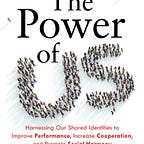Why everyone who doesn’t agree with you seems like a stupid idiot.
Remember “the dress”? Was it blue and black or white and gold? For a brief moment in 2015, this was the question that divided the internet. A visual illusion of sorts, people saw the dress either one way or the other — and reacted with bafflement to others who perceived it differently. What on earth are you talking about? Is there something wrong with your eyes? Or your brain?
Ellen DeGeneres wrote “From this day on, the world will be divided into two people. Blue & black, or white & gold” and shared the famous image below:
The controversy generated by the dress illustrated a powerful phenomenon known as naïve realism. Naïve realism is the deeply ingrained intuition that the way in which we personally experience and understand the world is firmly grounded in reality — that we perceive things as they genuinely are.
As a result, when we discover that other people don’t see the world in exactly the same way we do, our logical conclusion is that they must be incorrect (or worse!)
The consequences of naïve realism extend far beyond internet memes. The concept helps explain why people end up in all kinds of interpersonal and intergroup conflicts. This dynamic is captured by one of our all-time favorite cartoons where two armies are about to go to war over their different belief systems about the famous duckrabbit perceptual illusion.
The problem is that this problem affects all of us. Stop for a minute and think about a good friend or colleague. How well would you say you know this person? And how well do you think your friend knows you?
If you’re like many people, you will tend to think that you know your friend — their quirks and motives, their virtues and blindspots — a bit better than they know you. Maybe you can see them making the same mistakes over and over again, but they just can’t see the situation rationally or perhaps they ever refuse to take your advice.
Believing that we understand our friends objectively, we might even conclude — perhaps a little sadly — that we know them better than they know themselves!
Lee Ross, a social psychologist and professor at Stanford University who passed away recently, devoted much his career to illuminating the causes and consequences of naïve realism. With Emily Pronin and colleagues, he explained how faulty assumptions about our knowledge can negatively affect our relationships:
“The conviction that we know others better than they know us — and that we may have insights about them they lack (but not vice versa) leads us to talk when we would do well to listen and to be less patient than we ought to be when others express the conviction that they are the ones who are being misunderstood or judged unfairly.”
Just as we assume we see things objectively, we also tend to believe that our cherished in-groups are objective and rational. When out-groups hold diverging opinions and perspectives, they must, by definition, be wrong.
In trying to understand how other people or groups could be so incorrect, we often make a further leap of logic, jumping to the conclusion that they must be lazy, stupid, biased, evil or hopelessly blinded by self-interest or ideology. From the color of dresses to partisan politics, this dynamic appears to characterize a great of the conversation — or more accurately, the shouting — taking place on social media platforms.
In our opinion, naïve realism is one the most important concepts in human relations — and a major contributor to countless social conflicts.
Thankfully, Lee Ross offered a potential antidote to the negative consequences of naïve realism, a kind of golden rule that espouses a different type of naïveté:
“Our advice is to proceed from the naïve but charitable assumption that when people respond to important [issues] in ways that are surprising or offensive, it is generally their perceptions, assumptions, associations, and construals, rather than their basic values, that differ from our own.”
In other words, we are wise to remember that how other people behave follows from the way that they understand the world. And just as we typically assume that we see reality for what it truly is, so do they.
Of course, it’s possible that the people you disagree with may hold the wrong view or simply have the facts wrong. And, in many situations, this is the cold reality. But it’s a useful first step to pause and consider that either you might be wrong or perhaps there are multiple ways of thinking about the issue. We need to examine our own biases and blindspots.
If we seek to bridge differences and find compromise, whether in our friendships or our societies, we need to recognize that other people often think we are the ones who are incorrect. Some conflicts do indeed stem from irreconcilably different values or interests, but many have as much to do with mutual misperceptions and naïve realism on all sides.
If you want to get smarter about groups and help build smarter groups, join our free weekly newsletter on “The Power of Us”.
